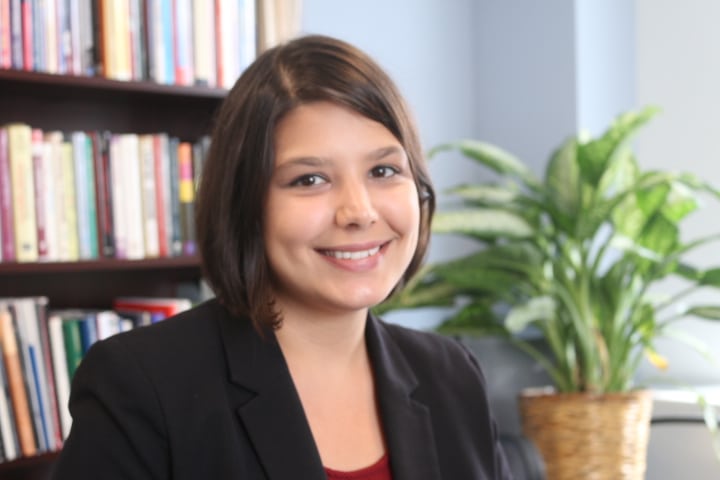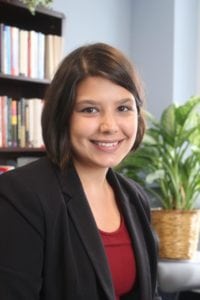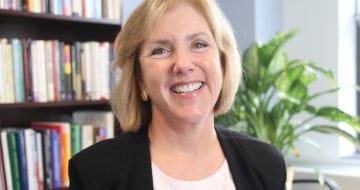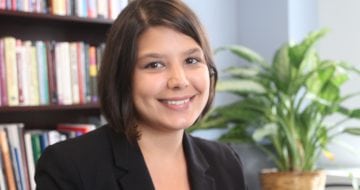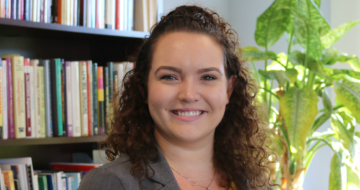When was the last time you accomplished something great solely on your own? We like to believe our successes are simply the result of our own hard work, talent, and motivation, but are we ever really at it alone? I don’t think so.
That’s not to say hard work and talent don’t matter – they do – in fact, I believe they’re critical parts of the recipe for success. But, the recipe is incomplete without another important ingredient: support from others.
We all need support in order to achieve success. Support can come in the form of our families, caring adult advisors, or a supportive peer network. I’ve said elsewhere that I would not be where I am today, especially in terms of educational attainment and career trajectory, without the generous support of others. I was (and still am) fortunate to have a robust support system of family, friends, and mentors to help me when I needed it, give me advice when I asked for it, and present me with opportunities when they came along.
But, what if you’re not fortunate like me? What if you lack a proper support system to provide you with help, guidance, and access to opportunity?
Young people involved in the child welfare and/or juvenile justice systems often face significant challenges to long-term success. These youth are often attempting to navigate numerous systems and many are doing so on their own. No young person should have to go at it alone – most of us never have to.
Systems-involved youth need a support system to successfully navigate education, employment, and overall self-sufficiency. High-quality, comprehensive programs rooted in principles of positive youth development that value relationships can serve as the support system young people need. The following programs are working across many systems to provide the help, guidance, and access to opportunities to support justice-involved and/or foster care youth navigate a path to postsecondary education and workforce success.
First Star
Since 2011, First Star has supported youth in foster care on a pathway to productive lives and careers through higher education. First Star partners with child welfare agencies, universities, and school districts to ensure foster youth have the academic skills, life skills, and supports needed to successfully transition to postsecondary education and adulthood.
First Star Academies are located at several university campuses throughout the country and are the only long-term college-preparatory programs for high school students in foster care. The model includes a four-year summer residency program on a college campus and holistic education case management throughout the school year. During summer immersion, students can recover high school credits, earn college credits, prepare for the SAT and college applications, and explore careers. Some academies are funded entirely through university and state or local child welfare agencies, while others include some help from philanthropy.
Nationally, only 46 percent of youth in foster care will earn a high school diploma or GED and less than 3 percent will obtain a bachelor’s degree. First Star is helping to change that narrative. 99 percent of students who have completed four years of programming have graduated high school, and 91 percent have enrolled in higher education, many to four-year universities.
Civicorps
Since 1995, Civicorps* has supported young adults who have dropped out of high school earn a high school diploma, gain job skills, pursue college, and begin a path to family sustaining careers. Located in Oakland, California, Civicorps is the only dropout recovery school for the Oakland Unified School District. 99 percent of Civicorps students live in poverty and are students of color. Half are justice-involved and a quarter are former foster youth.
There are three important elements to the Civicorps model. First, students earn a high school diploma at their own pace through the Civicorps charter school. All students have an individualized learning plan, access to one-on-one tutoring, and complete an academic portfolio. Students are also engaged in soft skills training, trauma-informed case counseling, mindfulness, mentoring, and financial literacy.
After the first 14 weeks of the education program, students advance to paid job training, working 32 hours a week on contracts with 11 public agencies and earning nearly $13 per hour. While on the job, students gain important occupational and soft skills, and also have the opportunity to earn industry certifications though some of the East Bay’s largest employers. During job training, students also attend evening classes two nights a week, working towards graduation.
Finally, for one year post-graduation, Civicorps offers career and college supports. Civicorps helps graduates apply for jobs, get placed in internship or union apprenticeship programs, enroll in community college, and access services not found on college campuses during evening classes, such as tutoring, special education support, and case counseling.
Through their holistic model, Civicorps boasts a 72 percent graduation rate (among the highest in Oakland). Moreover, one year after graduation, 73 percent of graduates are still enrolled in college and/or employed.
Supports are essential for success. All young people need help, guidance, and access to opportunity in order to reach their full potential in college, careers, and adult life. First Star and Civicorps are serving as that critical support system for systems-involved youth, helping young people navigate a path to postsecondary education and workforce success.
*To learn more about Civicorps, tune into our upcoming webinar Promoting Pathways to Long-Term Success for Systems-Involved Youth on Tuesday, June 6, 2017 at 1:00pm ET/10:00am PT.


